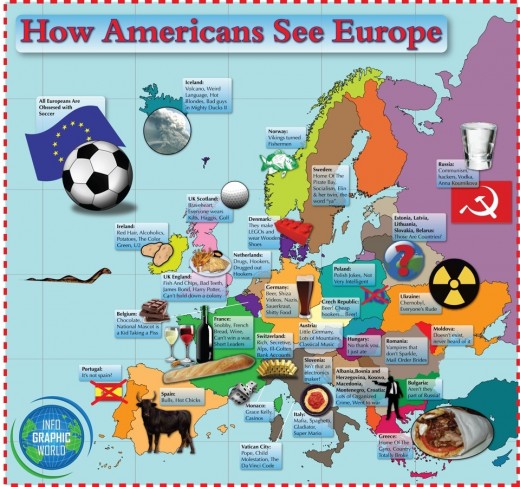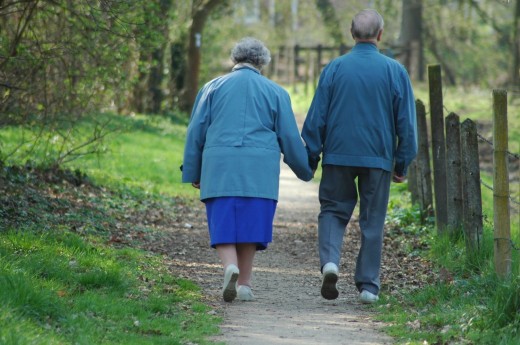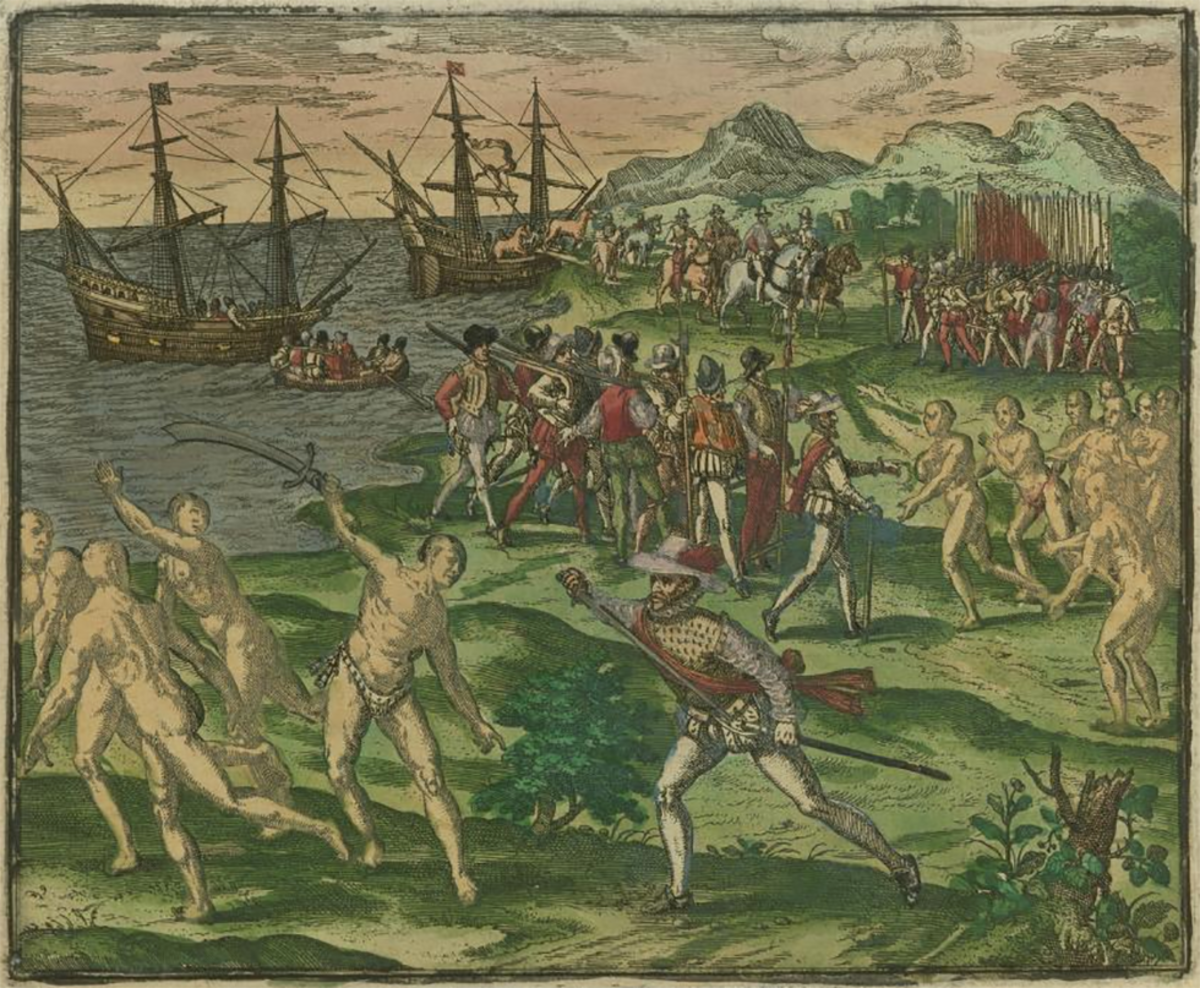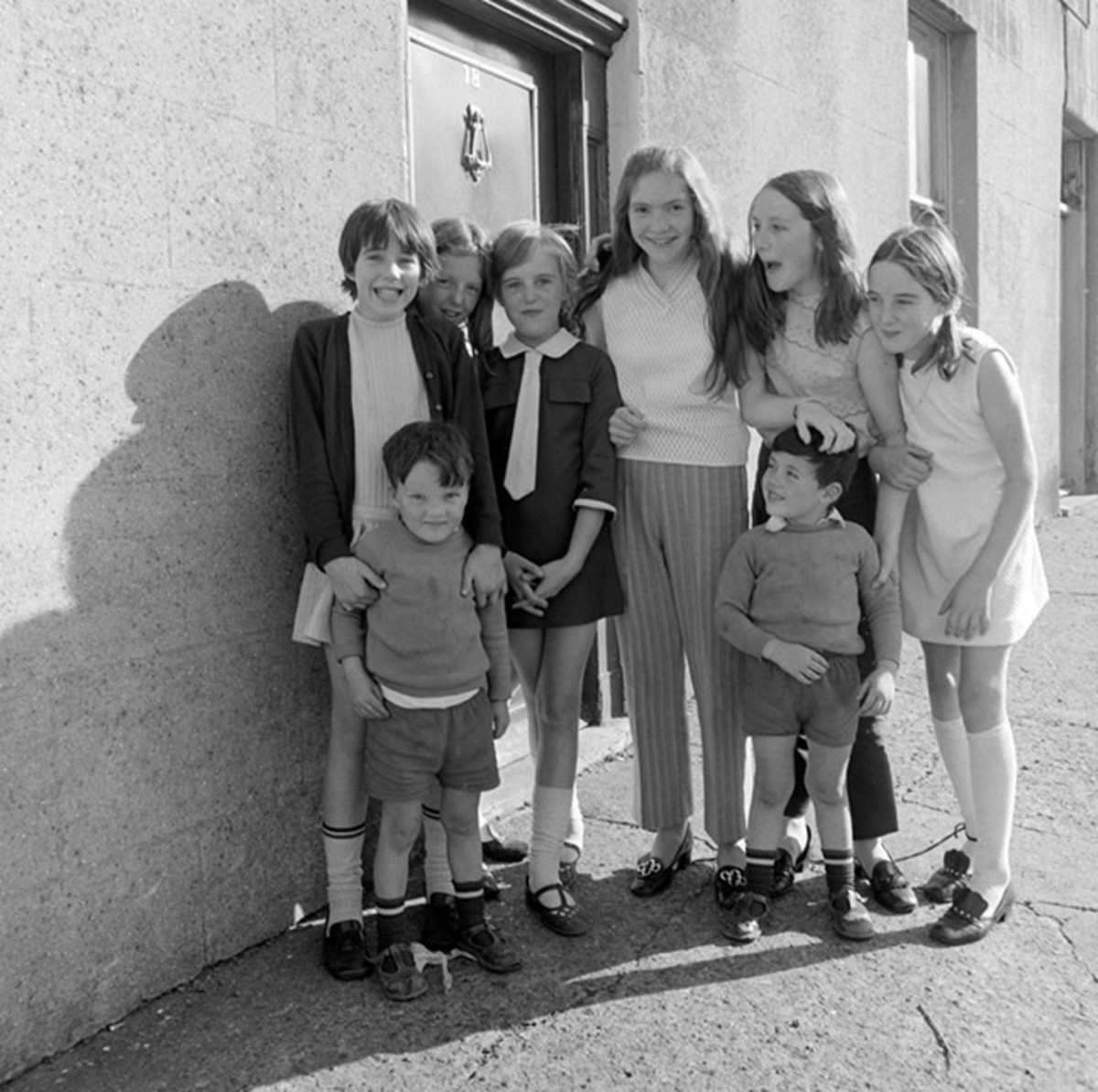What Americans can Learn from Europeans

Around the world, the American way of life is often viewed to center around work, career and a conventional lifestyle. As a European-American, I have had numerous opportunities to be immersed in the lifestyles, habits and views of numerous cultures within both the European and American continents, and like a sponge, absorbed cultural peculiarities wherever I happened to live. I must add that the process of assimilation also involves the discarding of various traditions that just don’t fit one’s views and conventions- and that is perfectly alright and self-affirming. This absorbing and discarding ultimately equates to a uniquely international perspective that is the sum of vast experiences, but which equally leaves one feeling the sense of not belonging to any one place fully…a true outsider with an adaptable quality that is fondly adopted by regional localities.
Given my multicultural credibility as a judge of cultural habits, and notwithstanding how biased they may be, I would like to shed light on a few lifestyle discrepancies between many European cultures and their American counterparts.
And here it goes…
Here are the top 5 Habits Americans Should Adapt from Europeans…

1) Relax! You are not defined by your job/career/money.
This one I hear about quite often. Many of my European friends are puzzled with the American obsession and attachment to work. Americans are to Europeans what Japanese are to Americans when it comes to their lives revolving around careers. Work is only a component of one’s life and should not be the dominator in importance. Just because we spend most of our lives at work does not mean that we are defined by it and it has control over who we are/what we think/how we relate to the world as unique individuals. It is simply a job that we may or may not take pleasure in doing. The most devastating part of projecting career/work as our identity is that it can be gone in a whim. The unemployment crisis left many people without jobs and most had to change their careers to accommodate to current financial markets. This should be a lesson to all that become very attached to their work: it is alright to love what you do, but your job can be taken away at any moment, and what/who do you have to turn then? Cultivating other aspects of one’s life besides work is very important, especially since retirement will call for absolute detachment from work and relegate us to channel our focus on other areas of life. By cultivating these areas, acquiring new hobbies and keeping in touch with good friends, we can assure that life beyond and after our careers end still flourishes and brings us joy.

2) Take long and frequent social breaks with friends/family members/coworkers.
A daily siesta is not necessary to truly relax and enjoy the working week. What is important is people. Europeans tend to emphasize more on people and family in their lives and make time to visit and socialize with their loved ones. This entails a ritual of getting together for coffee/tea very often, having lunch at each other’s place on the weekends, calling your family and really connecting, throwing a dinner party once a month and going to a pub after work with co-workers. Socialization is important and Europeans always find time to “hang out”! Socialization into old age has a positive impact on life expectancy and makes us feel like valued contributors to the lives of our loved ones and part of the world. Emphasizing the “people factor” is the key to a better quality of life.

3) Walk and leave the car behind!
Europeans walk everywhere…even if they have to walk far. Walking is almost a habit and one that Europeans enjoy and do on daily bases. Yes, it may be that their small towns are more pedestrian-friendly and big cities more picturesque and compact, but walking has really paid off for the continent. I hardly see any obesity in Europe, even though Europeans do like their rich foods. In fact, even very old and frail men and women walk everywhere- running errands, shopping, and hauling everything back home to an old apartment building without elevators. If they can do it, so can we! Putting walking to practice will really make a difference in how one feels, how one looks and may bring about many interesting events as one actively interacts with the world outside.

4) The smaller, the better.
Everything in Europe is usually smaller and miniature in size. But, what matters is that Europeans are used to smaller portions of food, beverages and sweets. A small American mug of coffee could pass for a large Americano in Europe. Europeans watch in horror when they see images of extra-large sodas and fast-food portions in American movies and commercials. And the thought of driving anything the size of a Hummer is beyond them! A smart car is so much more efficient, green and cheaper- so why super-size? Not only is size of issue, but quantity also plays importance. Europeans don’t understand American dependency on air-conditioning. Yes, under many circumstances and in certain very warm locations, it is a necessity. But, to work in an ice-box office and relax in an igloo of a Starbucks would just make a European flip. Life with smaller, compact and quality items is both more convenient and efficient but also health and environmentally friendly.

5) Embrace your uniqueness and individuality.
It seems that at the onset of puberty, American teenagers are bombarded by what the mainstream culture deems as cool, popular and fashionable. Jocks are “it” and band geeks are…not. Cliques are emphasized and individuality is discouraged. This trend is particularly emphasized by the heavy athletic component in American high-schools that promotes athletic merit over intellectual curiosity. In Europe, athletics are only reserved for physical education classes, and intellectual merit is very strongly enforced through challenging coursework demanded of all students alike. I myself remember being challenged vastly as a child and taking basic algebra and geometry in 5th grade! I also remember making friends with classmates for the sole reason that they were nice and interested me- and this came without the baggage of belonging to any cliques. So, I believe that by focusing on intellectual pursuits, European schools produce students that are socially unique and that follow their own unique pursuits.
This is further aided by a very liberal mainstream culture that embraces elements of the present subcultures and does not promote any particular social identity as superior to others. Europeans, as a result, develop and embrace their personality quirks, eccentricities and uniqueness to a higher extent than their American counterparts.
Indeed, I have friends who asked me whether American high schools are like what they appear to be in Hollywood movies. And although it is exaggerated for entertainment, the components of the social stratification and the subsequent lowering of self-esteem and bullying of many teenagers is all too real. American teenagers are living in a culture that is very destructive to the development of unique abilities and perceptions and instead celebrates a herd mentality. This can easily seep over to adult life and impede our growth as true unique individuals that we are and should be in this journey called life. By advocating a culture where individual uniqueness is the norm, America could excell even further in being the world's leader in innovation.








